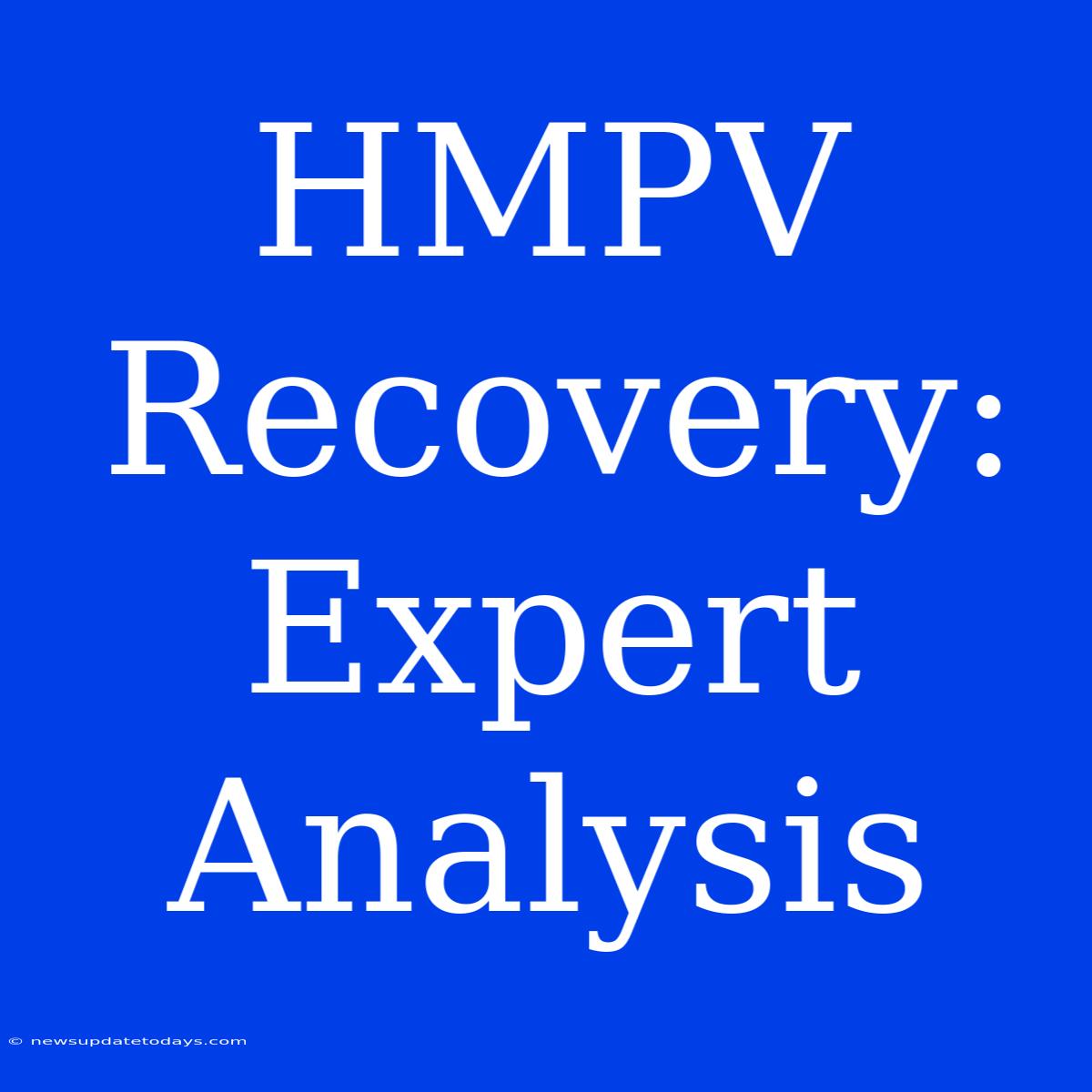HMPV Recovery: Expert Analysis & Your Path to Wellness
Human metapneumovirus (HMPV) is a common respiratory virus, often causing symptoms similar to the common cold or influenza. While most people recover fully, understanding the recovery process and potential complications is crucial. This article provides expert insights into HMPV recovery, offering guidance on managing symptoms and ensuring a complete return to health.
What is HMPV and its Symptoms?
HMPV is a virus that infects the respiratory tract. Symptoms typically appear 3-6 days after infection and can include:
- Cough: Often a persistent and sometimes severe cough.
- Runny nose: Can range from mild to profuse.
- Fever: May be present, especially in young children.
- Headache: Common symptom experienced by many.
- Muscle aches: Generalized body aches and pains.
- Fatigue: Significant tiredness and weakness.
- Sore throat: Inflammation and discomfort in the throat.
- Wheezing: A whistling sound during breathing, more common in children and those with underlying respiratory conditions.
- Shortness of breath: Difficulty breathing, potentially requiring medical attention.
Understanding the HMPV Recovery Timeline
The duration of HMPV recovery varies depending on individual factors such as age, overall health, and severity of infection. Generally, most adults experience symptom resolution within 1-2 weeks. However, coughs can persist for several weeks. In infants and young children, recovery may take slightly longer and symptoms might be more severe, sometimes requiring hospitalization.
<h3>Factors Affecting Recovery Time</h3>
Several factors influence the recovery timeline:
- Age: Infants, young children, and older adults tend to have more prolonged and severe symptoms.
- Underlying health conditions: Individuals with asthma, chronic obstructive pulmonary disease (COPD), or weakened immune systems may experience more complicated recoveries.
- Severity of infection: A severe HMPV infection will naturally take longer to recover from than a milder case.
- Treatment: Prompt medical attention and appropriate treatment can significantly shorten recovery time.
Managing Symptoms and Accelerating Recovery
While HMPV is a self-limiting illness, managing symptoms can significantly improve comfort and accelerate recovery. Here are some strategies:
- Rest: Adequate rest is crucial for your body to fight off the virus.
- Hydration: Drink plenty of fluids to prevent dehydration.
- Over-the-counter medications: Pain relievers (such as acetaminophen or ibuprofen) can help manage fever and aches. Decongestants and cough suppressants may also provide relief, but should be used as directed.
- Humidifier: Using a humidifier can help soothe irritated airways and alleviate cough.
- Avoid irritants: Stay away from smoke, dust, and other environmental irritants that can worsen respiratory symptoms.
When to Seek Medical Attention
While most HMPV infections resolve without complications, it is essential to seek medical attention if you experience:
- Difficulty breathing: Significant shortness of breath or wheezing.
- High fever: Fever that persists for several days or is very high.
- Dehydration: Signs of dehydration, such as decreased urination or dry mouth.
- Worsening symptoms: Symptoms that worsen despite home management.
- Severe cough: A persistent, severe cough that interferes with sleep or daily activities.
Expert Advice and Prevention
Consult your doctor for personalized advice on managing your symptoms and ensuring a full recovery. They can assess your individual needs and recommend appropriate treatment. Remember, preventative measures like frequent handwashing and avoiding close contact with infected individuals can significantly reduce your risk of contracting HMPV.
Conclusion
HMPV recovery is typically a straightforward process for most individuals. By understanding the recovery timeline, managing symptoms effectively, and seeking medical attention when necessary, you can ensure a smooth return to health. Remember, proactive measures such as maintaining good hygiene and staying informed about respiratory viruses can play a significant role in preventing infection.

